How to Prevent Mold in Kitchen: Complete Professional Guide
Protect your family’s health with expert mold prevention strategies. Get professional-grade solutions, humidity control methods, and certified inspection services.
Get Your Free Professional Inspection🚨 Critical Kitchen Mold Facts
Kitchen mold prevention requires controlling moisture levels below 50% humidity, maintaining proper ventilation, and implementing daily cleaning routines. Professional testing reveals that 92% of kitchens show mold presence, making systematic prevention strategies essential for protecting your family’s health.
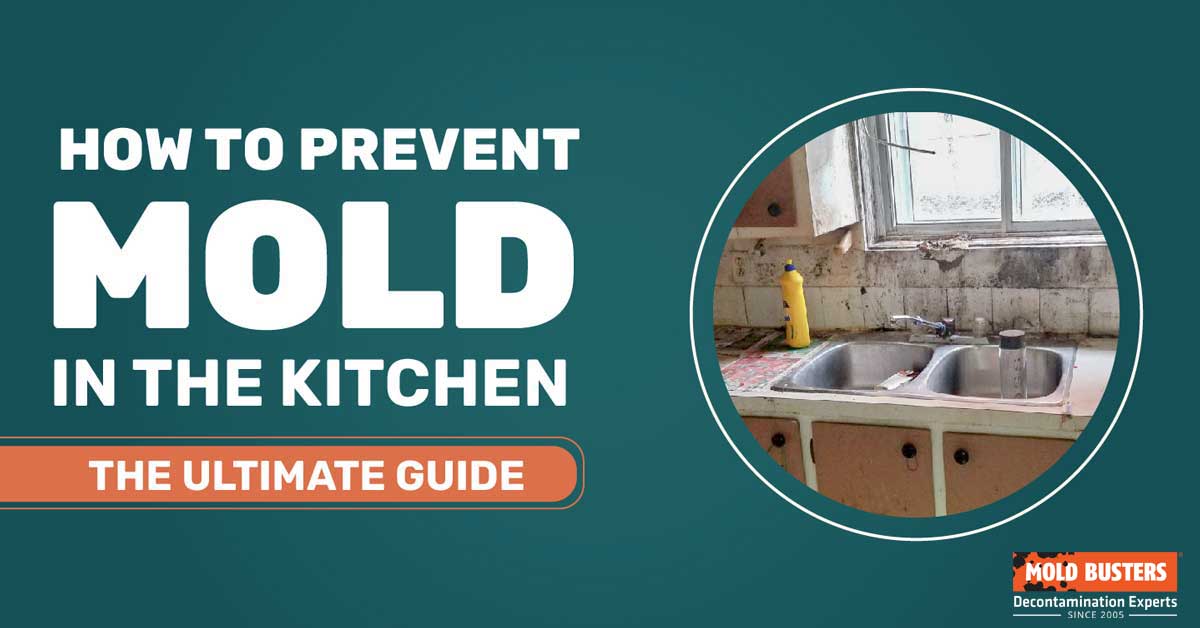
Essential Kitchen Mold Prevention Checklist
This checklist represents industry-standard practices used by certified mold remediation specialists to maintain mold-free kitchen environments year-round.
- Maintain optimal humidity levels (30-50%) – Use calibrated hygrometers and professional-grade dehumidifiers
- Operate exhaust fans during all cooking activities – Remove moisture at the source with minimum 100 CFM capacity
- Address water intrusion within 24-48 hours – Follow EPA guidelines for rapid moisture response
- Implement daily surface cleaning protocols – Remove organic matter using EPA-approved cleaning agents
- Conduct weekly high-risk area inspections – Monitor under sinks, behind appliances, inside storage areas
- Maintain waste management systems daily – Empty containers and clean garbage disposals
- Process dishes within 24-hour cycles – Prevent standing water and food debris accumulation
- Perform monthly refrigerator maintenance – Remove expired items and sanitize surfaces
For comprehensive implementation support, our professional mold testing services provide baseline assessments and ongoing monitoring.
Professional Testing Results
Only 8% of kitchens we have professionally tested showed no mold presence! Our comprehensive mold statistics database reveals critical insights about residential contamination patterns.
Understanding Kitchen Mold: Scientific Basis
Understanding this scientific foundation enables targeted prevention strategies that address root causes rather than treating symptoms after contamination occurs.
Professional risk assessment identifies kitchens as Category 1 high-risk environments due to consistent moisture generation, abundant organic matter, and optimal temperature ranges. Healthcare industry research confirms that kitchen mold exposure contributes to respiratory complications and compromised immune system function.
Primary Kitchen Mold Causes
Each category requires specific prevention protocols and monitoring strategies to maintain long-term mold-free environments.
Water Intrusion & Plumbing Failures
Plumbing-related water intrusion accounts for 67% of kitchen mold cases. Hidden leaks behind walls, under sinks, and around appliance connections create sustained moisture conditions that are primary causes of mold growth.
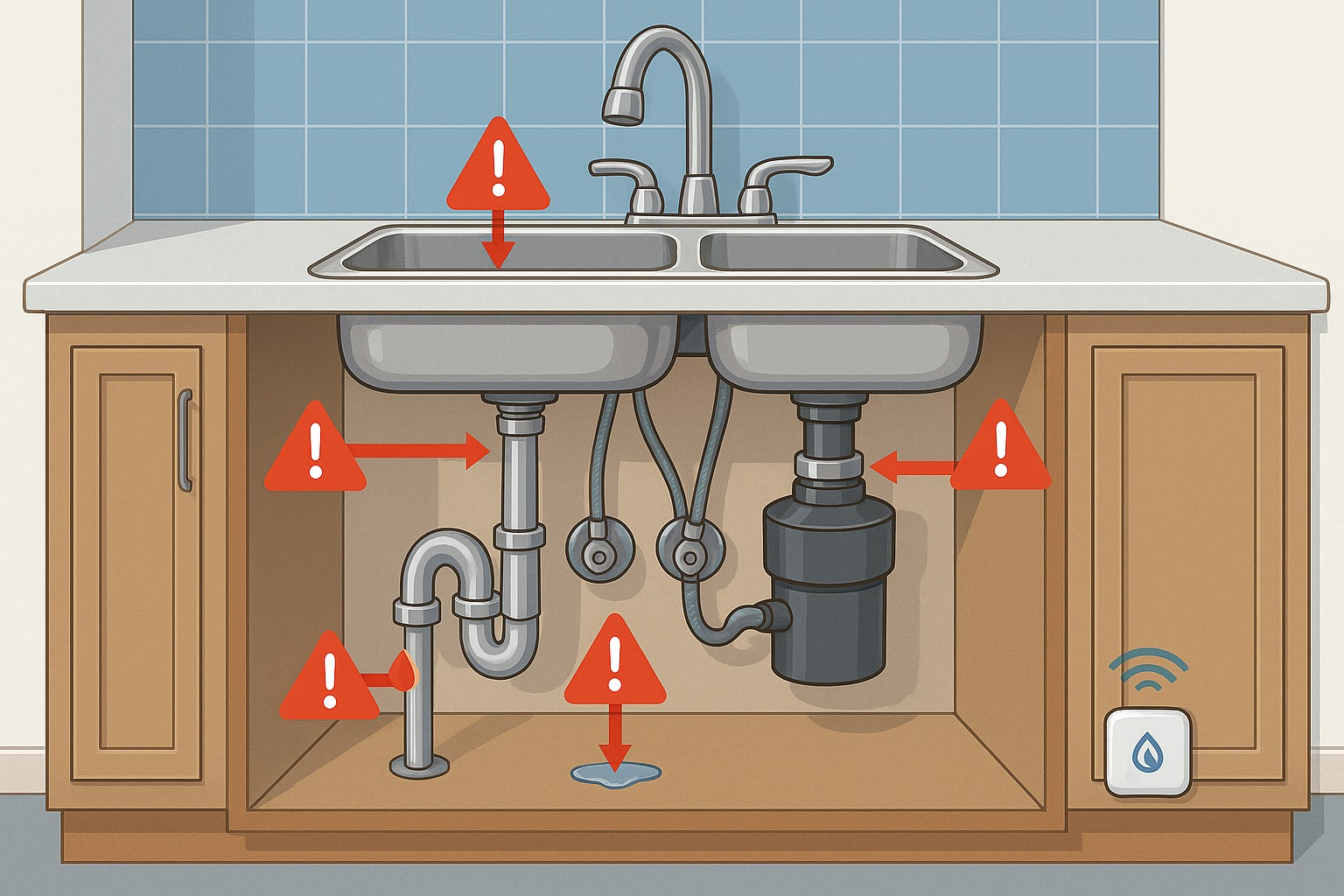
Our certified air quality testing services can detect moisture intrusion before visible damage appears.
Understanding the root causes of mold growth is essential for implementing effective prevention strategies.
Humidity & Ventilation Issues
Inadequate ventilation systems contribute to 58% of kitchen mold contamination cases. Cooking activities generate 2-4 pounds of water vapor daily in average households.
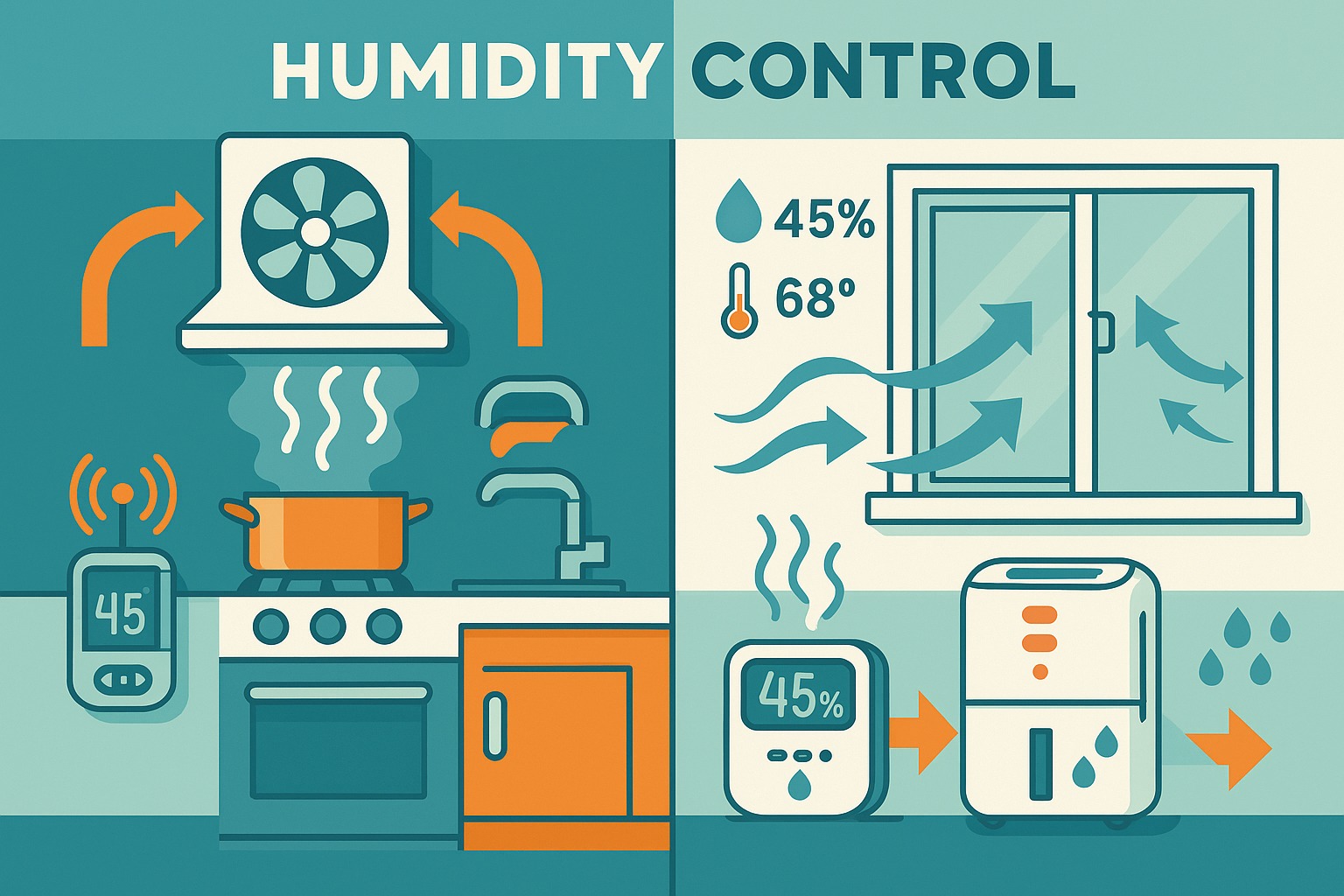
Smart environmental monitoring systems can automatically activate ventilation when humidity exceeds safe thresholds.
Organic Matter & Food Storage
Improper food storage practices create multiplication factors that accelerate mold growth rates by 300-500%. Refrigerated storage doesn’t eliminate mold risks completely.
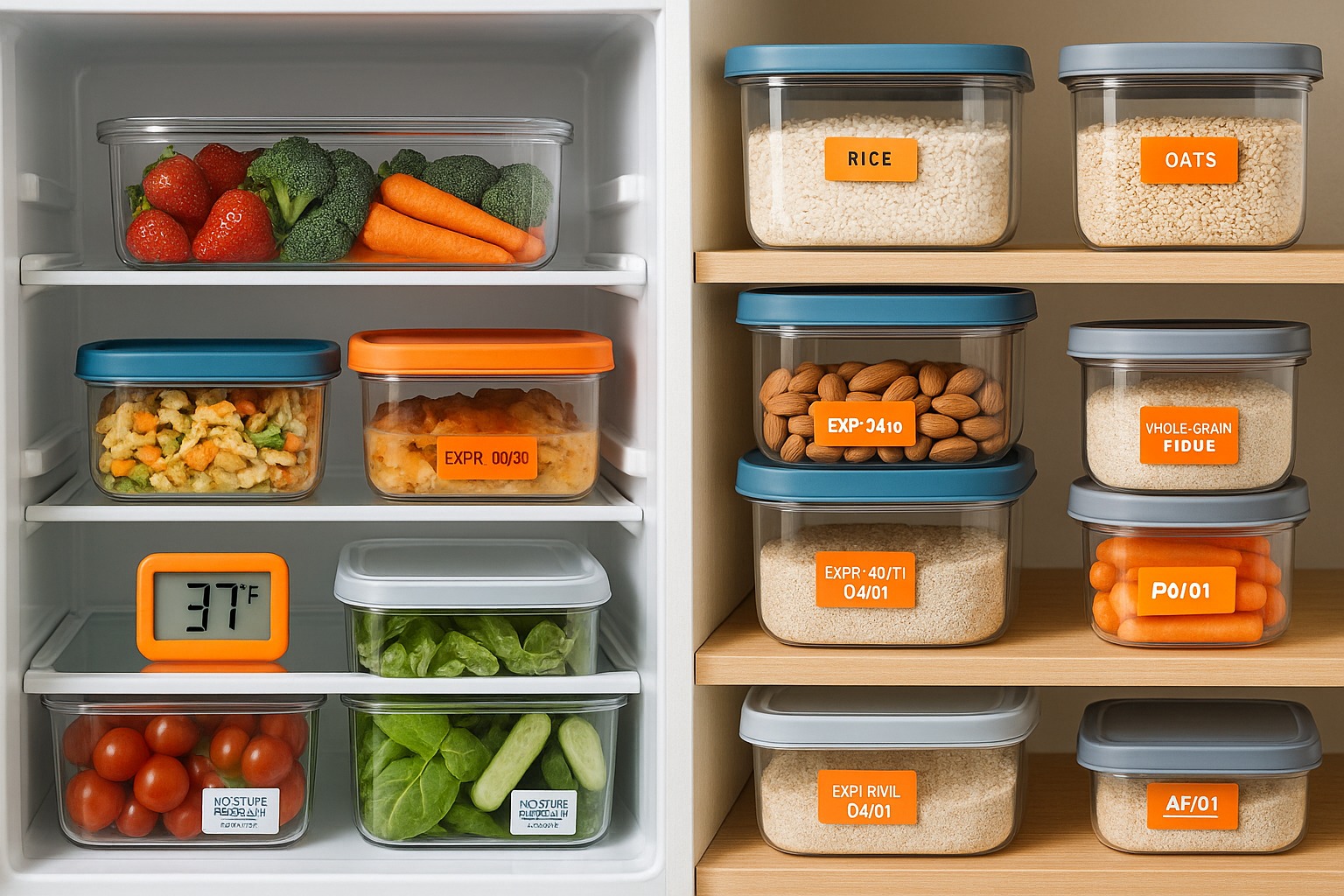
Professional food safety protocols require systematic inspection and immediate contaminated item removal.
Don’t Wait Until It’s Too Late
Professional mold assessment can prevent costly remediation and protect your family’s health. Our certified specialists provide comprehensive inspections and customized prevention plans.
Get Professional AssessmentProfessional Prevention Strategies
These strategies follow industry standards for residential mold prevention and have proven effectiveness across thousands of properties.
For residents in Montreal and Ottawa, our local professionals provide specialized services tailored to regional climate challenges. We also serve Gatineau, Kingston, and surrounding areas.
Advanced Humidity Control
Implement these professional-grade humidity control strategies:
- Install calibrated digital hygrometers – Monitor humidity variations throughout kitchen areas
- Deploy automatic exhaust fan systems – Activate ventilation when moisture exceeds 50%
- Use variable-speed dehumidifiers – Maintain precise humidity with energy optimization
- Implement heat recovery ventilation (HRV) – Balance fresh air with energy conservation
Our professional virtual inspection service provides comprehensive humidity assessment and control system recommendations. For existing moisture problems, our infrared water damage inspection can identify hidden moisture sources.
Water Intrusion Detection
Early detection systems prevent 89% of potential mold contamination cases through timely intervention.
Deploy comprehensive leak detection systems:
- Install smart water sensors at high-risk locations – Under sinks, behind dishwashers, refrigerator connections
- Implement automatic shut-off valves – Stop water flow immediately when leaks detected
- Schedule monthly professional inspections – Identify potential failure points before emergencies
- Monitor water pressure variations – Address infrastructure issues before leaks occur
24/7 monitoring services provide immediate alerts and coordinate emergency response when water intrusion occurs.
Systematic Cleaning Protocols
Evidence-based approaches reduce contamination risks by 94% compared to informal cleaning practices.
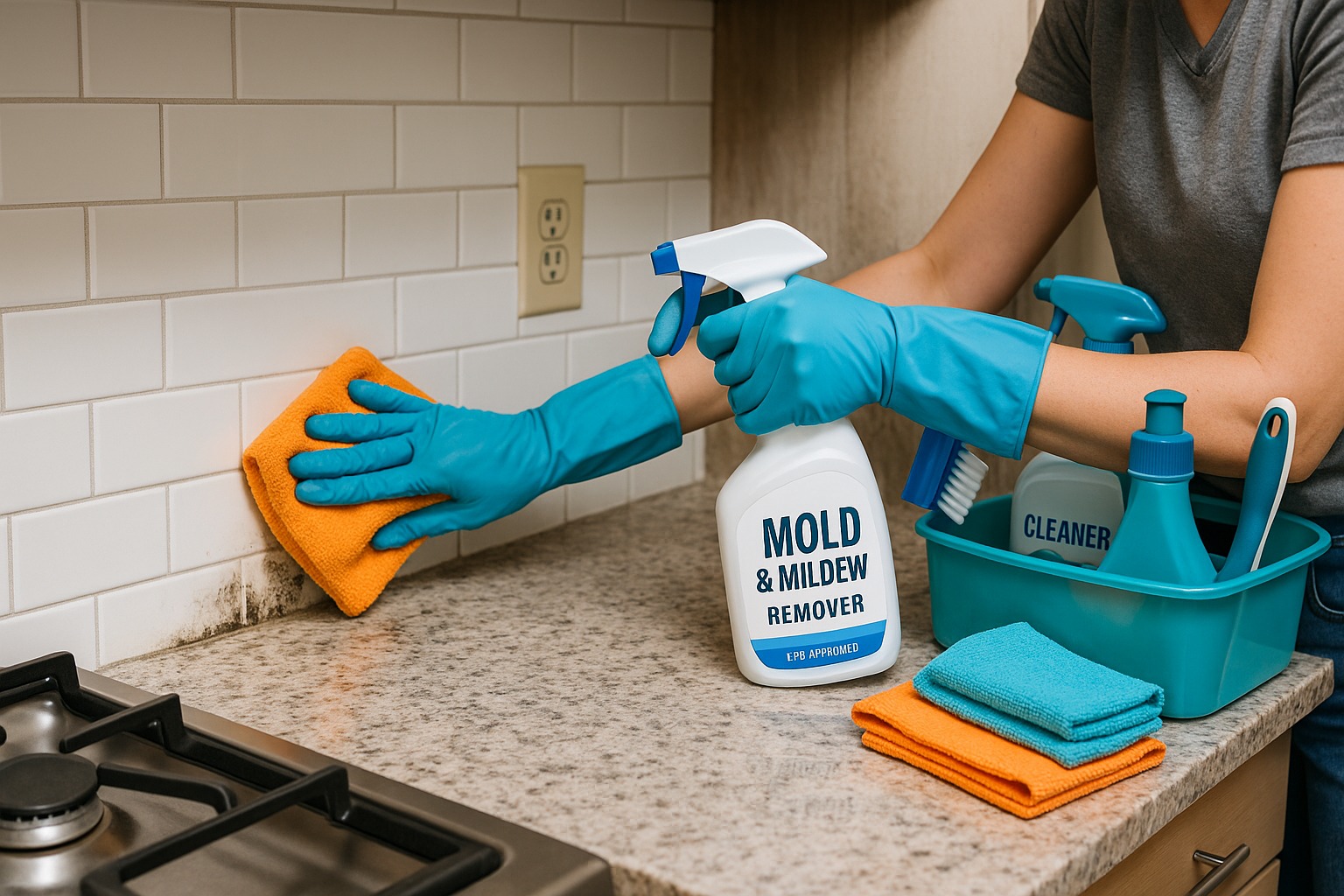
Daily professional maintenance routines:
- Surface sanitization using EPA-approved solutions – Target countertops, appliances, high-touch areas
- Complete moisture removal from all surfaces – Use professional-grade microfiber cloths
- Food debris elimination from hidden areas – Behind appliances, cabinet corners, under sinks
- Immediate spill response with documentation – Prevent moisture penetration into porous materials
- Daily waste system maintenance – Empty containers, clean disposals, sanitize storage areas
Advanced Food Storage Management
Proper implementation reduces food-related mold incidents by 87% while extending food safety periods.
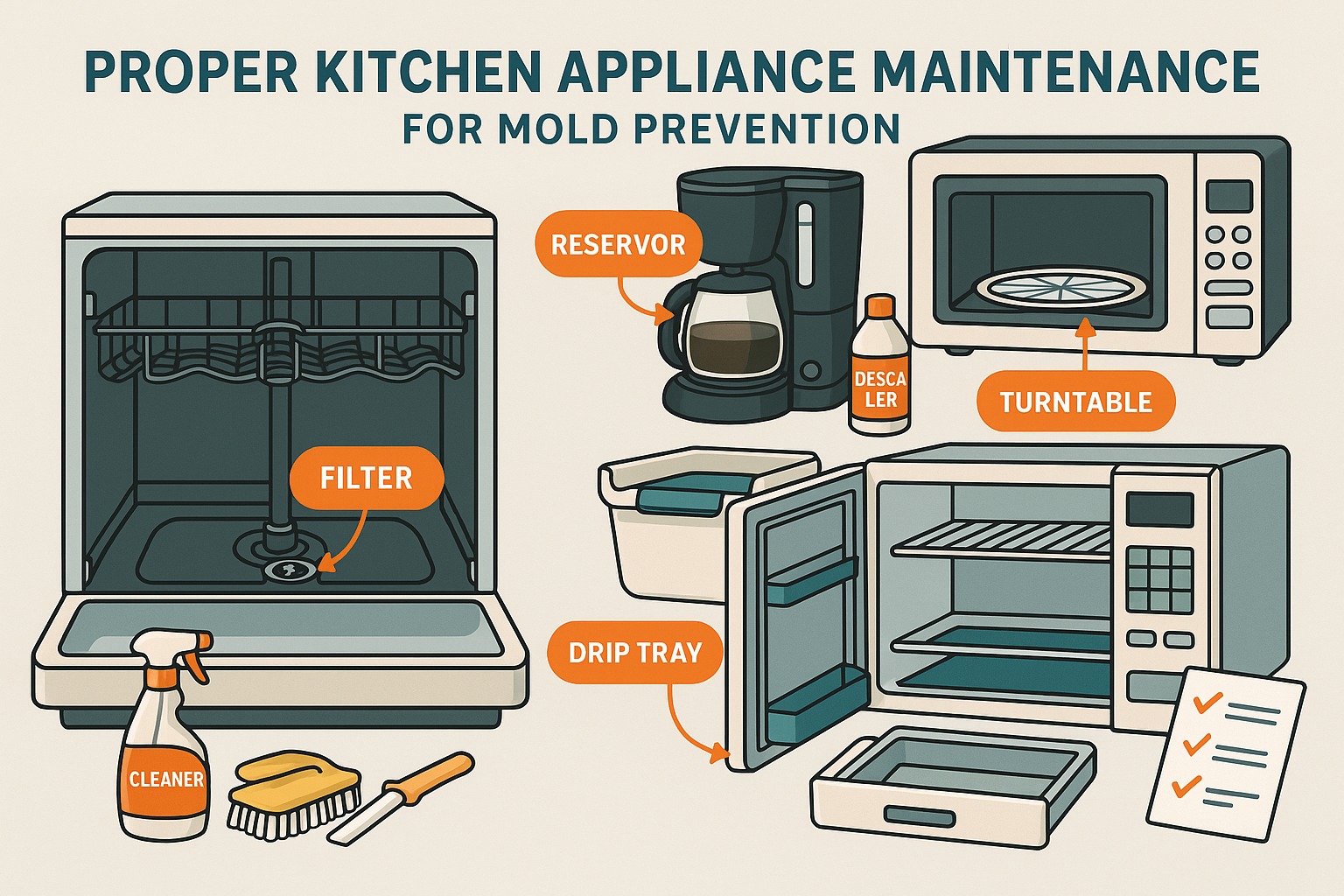
FIFO Rotation Systems
Implement First In, First Out rotation to prevent extended storage that leads to spoilage and mold growth.
Sealed Container Storage
Use moisture-proof containers for all dry goods to eliminate humidity exposure and cross-contamination.
Temperature Control
Maintain refrigerator temperatures between 35-38°F to optimize food preservation while slowing mold growth.
Our professional mold inspection services in Montreal include comprehensive appliance assessment and maintenance guidance. Understanding where to look for mold in kitchen storage areas helps prevent contamination.
When to Contact Professional Specialists
Understanding these decision points prevents inadequate treatment that can lead to recurring problems and increased health exposure.
🔍 Visible Contamination
Mold growth covering more than 10 square feet requires professional remediation per EPA guidelines. Severe cases may require specialized black mold removal protocols.
👃 Persistent Odors
Musty odors after thorough cleaning indicate hidden contamination requiring professional detection. Learn more about identifying mold by smell and when to seek professional help.
💧 Water Damage
Flooding, burst pipes, or appliance failures need rapid professional response to prevent contamination.
🏥 Health Symptoms
Respiratory issues, headaches, allergic reactions require medical and environmental assessment.
Our certified kitchen mold removal specialists provide comprehensive assessment, safe remediation, and prevention planning. Professional mold removal services include surface sampling analysis, post-remediation verification and ongoing monitoring.
Remember: Professional testing provides definitive identification and appropriate treatment recommendations. Our ERMI testing services provide comprehensive contamination analysis, while success stories from our clients demonstrate the effectiveness of professional intervention.
Protect Your Family’s Health Today
Don’t let kitchen mold put your family at risk. Our certified professionals provide comprehensive assessments, proven prevention strategies, and ongoing support to keep your kitchen safe and healthy.
Book Free Professional InspectionAchieving Long-term Kitchen Mold Prevention Success
The combination of advanced technology, proven protocols, and expert guidance creates sustainable mold-free environments that protect your family’s health and preserve your home’s value.
Success in kitchen mold prevention depends on understanding that mold requires moisture, organic food sources, and favorable temperatures to thrive. By controlling these factors through professional strategies, homeowners can maintain healthy kitchen environments while protecting their families and property.
Regular professional inspections complement home prevention efforts by identifying hidden moisture sources, assessing indoor air quality conditions, and providing expert guidance on area-specific risks and solutions. Take action now to prevent mold throughout your home, including bathroom prevention and basement prevention, ensuring your kitchen remains a safe, healthy space for food preparation and family activities.
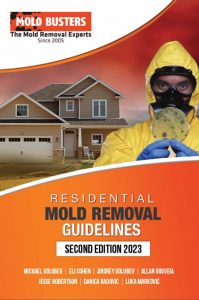
Get Special Gift: Industry-Standard Mold Removal Guidelines
Download the industry-standard guidelines that Mold Busters use in their own mold removal services, including news, tips and special offers:
"*" indicates required fields
Published: August 21, 2018 Updated: December 30, 2025

Written by:
John Ward
Account Executive
Mold Busters
Fact checked by:
Michael Golubev
CEO
Mold Busters

